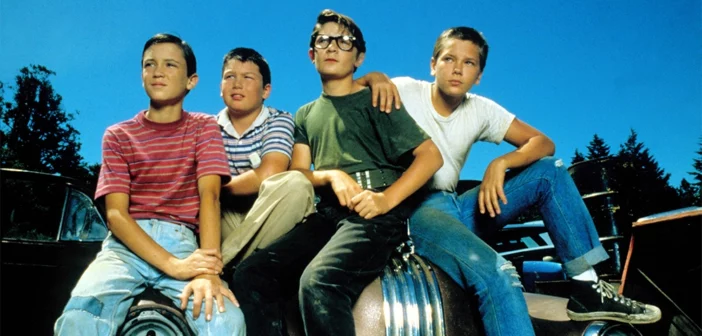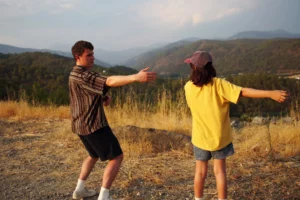The air is soft, thick and smooth. The sun sets gently, acting as the perfect backdrop for the scene that unfolds below it – a small group congregated around a fire; they laugh, exchanging small looks, allowing the pink and purple sky to paint over any tensions that lie beneath. The smoky fumes dissipate into the dusky air, clouding the fact that it’ll never be the same for our cast again, and sooner or later, the walls will peel and the tensions will bleed out.
It is exactly this that makes summer the perfect petri dish for coming-of-age stories to grow and flourish in. ‘Coming of age’ is an idea that is so vastly universal, yet so incredibly personal and often abstract. It transcends time and place, it’s hard to pin down the exact moment it happens to a character because it’s a process, a build-up of events that change the way the character thinks and acts. Put more simply, everyone ‘comes of age’ in one way or another, often not realising it at the time. The plot points are focused on emotional growth and are so personal and specific to each setting and story. The narrative normally circles around themes of change, loss of innocence, and the idea that nothing lasts forever; this can take place within any genre, it can be romantic, horrific, or dramatic. It’s a malleable genre, it’s a genre that makes you forget it’s a genre, and often the coming-of-age parts of these stories just ‘feel’ like a slice of life, and this is helped by how applicable it is to different mediums of media – films, TV, books, even songs can capture this narrative and feeling.
This intense universality lends itself incredibly well to the summer setting so many of these stories take place in. Summer can be seen as the lawless season. The usual constraints of a mundane routine are released, there’s no school, the characters may not be in their hometown, and there’s a palpable sense of temporariness when creating a narrative around summer that lends itself to the flexibility that comes with a coming-of-age story. It’s not quite dramatic irony in that the audience knows it’ll end and the characters don’t, it’s more knowing the characters will leave the story changed. It’s also more that the audience gets lost in the plot with the characters, and the intensity of the ticking time bomb of summer ending only adds to this connection.
Summer doesn’t just seem freer for teenagers, and coming of age shouldn’t be seen as a genre limited to those under the age of twenty. ‘Bildungsroman’ is the specific term for coming-of-age stories that focus on childhood to adulthood, but outside of this, coming-of-age is a very open concept that can be applied to adults as well. Of course, taken literally ‘coming of age’ is to become an adult, but in media the character arc of gaining maturity and learning over the course of the narrative is a lot more flexible than simply turning 16 or 18. Take the 2009 film ‘(500) Days Of Summer’, for example, this follows a whirlwind romance of two working professionals in Los Angeles. They are in their twenties and still, this can be considered a coming-of-age narrative as they are both changed by the end of it, for better or for worse.
Summer is also a memorable season. In many ways it’s considered a measure – think about songs like ABBA’s ‘Our Last Summer’. This idea that summer won’t last but will come around every year is exactly what makes it the perfect setting for a coming-of-age story. So, as the book closes, or as the camera pans up, above the eerily empty street to show the sun rising in the distance, as the final shot of our main character opening their front door is shown, and as the music grows louder for the credits to start rolling, there is a bittersweet comfort. It’s over, but it’ll happen again next year. It won’t be the same, it won’t always be like this, but it’ll be, and that’s the beauty of coming of age in a summer setting.
—
Author recommendations:
Below are a few recommendations, most are set in summer, or capture the feelings associated with the genre
Films: ‘Aftersun’ (2022), ‘(500) Days of Summer’ (2009), ‘Goonies‘ (1985), ‘Stand By Me’ (1986), ‘Almost Famous’ (2000).
Books: ‘The Outsiders’ (S.E. Hinton), ‘Aristotle and Dante Discover the Secrets of the Universe’ (Benjamin Alire Sáenz), ‘Travelling Vampire Show’ (Richard Laymon)
Songs: ‘End of Beginning’ (DJO), ‘Where’d All the Time Go?’ (Dr. Dog), ‘Wildflower’ (Beach House), ‘What Once Was’ (Her’s).





